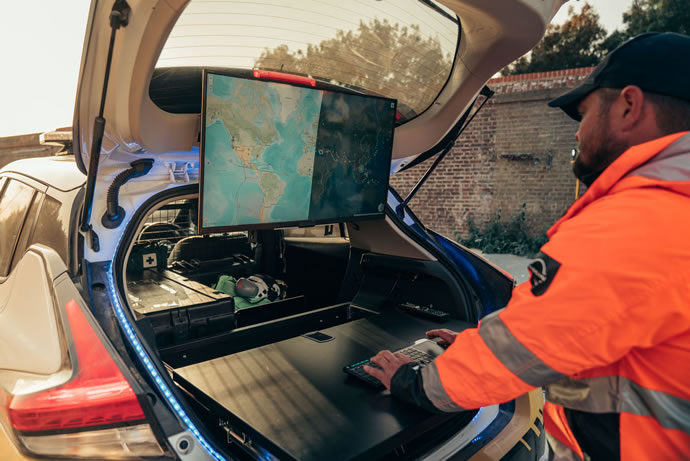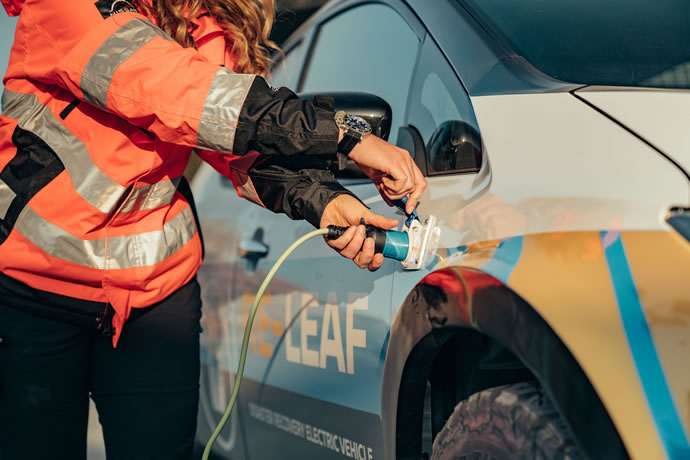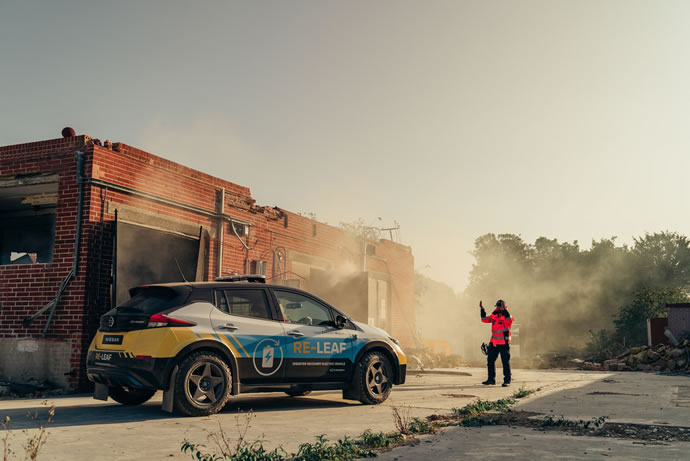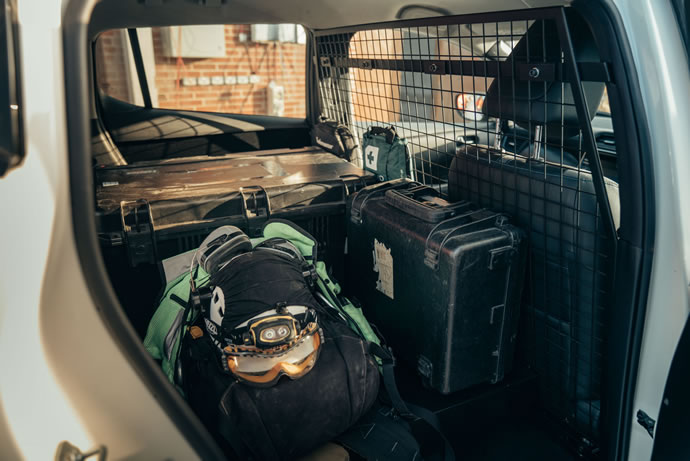Nissan unveils a 100% electric emergency response vehicle concept – Nissan RE-LEAF

Nissan today unveiled a 100% electric emergency response vehicle concept- RE-LEAF1, designed to provide a mobile power supply following natural disasters or extreme weather. The Nissan RE-LEAF1 working prototype is based on the world’s first mass-production electric car -Nissan LEAF. Alongside modifications to navigate roads covered in debris, the RE-LEAF features weatherproof plug sockets mounted directly to the exterior of the vehicle, which enable 110- to 230-volt devices to be powered from the car’s high-capacity lithium-ion battery.
The RE-LEAF can be driven into the center of a disaster zone and provide a fully mobile power supply to aid the recovery process. The integrated energy management system can run medical, communications, lighting, heating and other life-supporting equipment. The RE-LEAF uses the LEAF’s bidirectional charging ability, a standard feature of the model since its introduction in 2010. This means the LEAF can not only “pull” power to recharge the high-capacity battery, but also “push” it back to the grid through V2G (Vehicle-to-Grid) technology, or directly to electric devices through V2X (Vehicle-to-everything).

Natural disasters are the biggest cause of power outages. A 2019 World Bank report found natural shocks and climate change caused 37% of outages in Europe between 2000 and 2017, and 44% of outages in the U.S. over the same period. When a disaster hits, the time for electricity supply to be restored is typically 24 to 48 hours, depending on the severity of the damage. During that period, electric vehicles like RE-LEAF1 can provide zero-emission mobile emergency power.

Nissan created the RE-LEAF to demonstrate the potential of electric vehicles in disaster recovery. Nissan EVs can also act as mobile storage batteries to supply homes and society with electricity during non-emergency situations through Nissan Energy Share, creating a distributable energy model that can be used to help stabilize supply and demand. Acting as a portable power station, the latest generation Nissan LEAF e+ with a fully charged 62 kilowatt-hour battery can provide enough electricity to power the average European household for six days.

As a disaster recovery vehicle, the RE-LEAF can power multiple devices simultaneously like Electric jackhammer, 10-liter soup kettle, 100-watt LED floodlight etc for 24 hours. Once electricity is restored to the area, EVs can be recharged and provide zero-emission transport – up to 385 kilometers2 on a single charge of a LEAF e+ battery.
